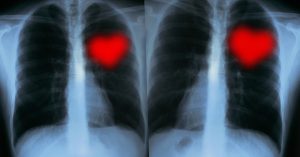What Your Family History Says About Your Heart Health
Heart disease remains the leading cause of death for both men and women in the United States. While smoking, stress, and diet are clear risk factors, family history must also be taken into account when determining if a person is at an increased risk of developing this deadly condition.
Below, we discuss how family history — your genes and upbringing — is a key indicator in determining your risk of developing heart disease. If your parents, siblings, or close relatives have been afflicted with heart disease, consider seeking a heart specialist in Tampa Bay who can diagnose your condition.
Below, we discuss how family history — your genes and upbringing — is a key indicator in determining your risk of developing heart disease. If your parents, siblings, or close relatives have been afflicted with heart disease, consider seeking a heart specialist in Tampa Bay who can diagnose your condition.
It Runs in the Family
When looking at your family history, start with your immediate family and work your way back. Did your parents or siblings suffer from a heart attack or stroke at a young age (55 or younger for men, 65 or younger for women)? Even if your parents were spared, if a grandparent suffered from heart disease, it could indicate that you are at an increased risk of developing heart disease. In addition to heart attack and stroke, consider scheduling an appointment with a cardiologist if any of the following heart diseases are present in your family history:
• Congenital Heart Disease
• Coronary Artery Disease
• Cardiomyopathy
• Heart Failure
• Heart Valve Disease
• Abnormal Heart Rhythms
Inherited risk factors like diabetes, high blood pressure, and high cholesterol can also lead to heart disease and may shed light on who in your family is susceptible to developing a heart-related problem. For assistance in diagnosing and treating these conditions, consult a Tampa heart specialist from Ascent Cardiology Group.
• Congenital Heart Disease
• Coronary Artery Disease
• Cardiomyopathy
• Heart Failure
• Heart Valve Disease
• Abnormal Heart Rhythms
Inherited risk factors like diabetes, high blood pressure, and high cholesterol can also lead to heart disease and may shed light on who in your family is susceptible to developing a heart-related problem. For assistance in diagnosing and treating these conditions, consult a Tampa heart specialist from Ascent Cardiology Group.
Looking at Environmental Factors
Remember, family history is a combination of your genes and upbringing. The environment your family shares has an impact on your risk of developing heart disease. For example, if you come from a low-income family that was unable to afford healthy food, this may lead to heart disease later in life.
There are, of course, other characteristics that are beyond your control, such as your age, sex, and race or ethnicity. All of these risk factors can stack up and make it seem like heart disease is inevitable, but the only way to know for sure is to contact a Tampa heart specialist who can set your mind at ease and determine what treatment, if any, is right for you.
There are, of course, other characteristics that are beyond your control, such as your age, sex, and race or ethnicity. All of these risk factors can stack up and make it seem like heart disease is inevitable, but the only way to know for sure is to contact a Tampa heart specialist who can set your mind at ease and determine what treatment, if any, is right for you.
Consult a Cardiologist
At Ascent Cardiology Group, we can employ several noninvasive procedures, such as a stress test or transesophageal echocardiogram (TEE), to make a diagnosis and determine once and for all if you are at risk or suffering from heart disease. These same-day procedures allow our cardiologists to immediately diagnose the conditions of the heart. From there, we can develop a treatment plan and take any necessary steps to ensure your heart health is preserved. If you are concerned that your family history puts you at risk of developing heart disease, take a precautionary step and schedule an appointment with Sachin Diwadkar, M.D., of Ascent Cardiology Group.
To consult a heart specialist in Tampa Bay from Ascent Cardiology Group, please request an appointment today.
Disclaimer: The contents of this website are for general educational purposes only. All content and media on the Ascent Cardiology Group website does not constitute professional medical advice nor is the information intended to replace the services of Ascent Cardiology Group or other qualified medical professionals. If you believe you are having a medical emergency, call 911 immediately.
The content, views, and opinions communicated on this website do not represent the views of Ascent Cardiology Group. Reliance on any information provided by this website is solely at your own risk. Although this website contains links to other medical websites, this is strictly for informational purposes. Ascent Cardiology Group is not responsible nor do they approve of the content featured on any third party linked websites referenced on this website.
The content, views, and opinions communicated on this website do not represent the views of Ascent Cardiology Group. Reliance on any information provided by this website is solely at your own risk. Although this website contains links to other medical websites, this is strictly for informational purposes. Ascent Cardiology Group is not responsible nor do they approve of the content featured on any third party linked websites referenced on this website.
More Resources

Stress and Heart Disease: What You Can Do to Improve Your Heart Health
Working long hours, filling up free time, and taking on additional responsibilities is a way of life for Type A

What is Nuclear Cardiology?
Nuclear cardiology is a subspeciality of general cardiology that involves the use of radioactive substances and advanced medical imaging modalities

Coronary Heart Disease: What Is It and How Is It Treated?
In addition to being the most common type of heart disease, coronary heart disease is the deadliest. In fact, it’s